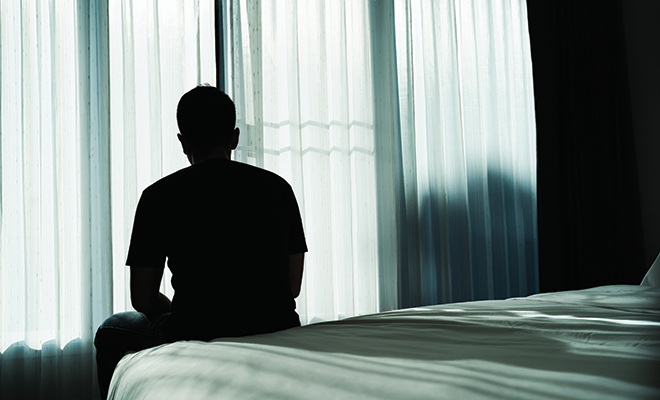
Men and Mental Health
Craig’s battle with mental health started a few years ago. Feeling anxious and depressed while dealing with dermatillomania, a skin picking disorder, he first brushed off his feelings as pandemic woes and tried to just get over it. But after several months of not feeling like himself, his stress and worry started affecting his functioning in social, work and family activities.
With some convincing from friends and the realization that his symptoms weren’t going away, Craig decided to reach out for help. These days, Craig visits a therapist regularly and uses learned methods to deal with his emotions and triggers. While his journey may be long, he sees the improvements he’s already made in his mental health and he has the incentive to continue his progress.
According to Mental Health America, over 6 million men suffer from depression, but male depression, along with other mental health issues, often goes underdiagnosed. There are many reasons for it, including possible stigmas attached to talking about it, social norms and men often downplaying their symptoms. Men are also much less likely than women to seek mental health help. Only about one-third of people in therapy in the U.S. are men.
By forgoing support for mental or emotional issues, some men may begin to self-medicate with alcohol or drugs to help relieve the pain. Individuals with substance use disorders are particularly susceptible to suicide and suicide attempts. Men commit suicide three and a half times more often than women.
There’s no doubt that COVID-19 has brought many mental health challenges as well. The varied cycles of lockdowns, loss, worry and stress have impacted nearly everyone in one form or another. The good news is that the pandemic has made it more acceptable to talk about mental health, which many experts believe helps males feel more comfortable about getting support.
According to experts, female mental issues tend to center around depression and anxiety, but men are more likely to externalize emotions, which can lead to aggressive or impulsive behavior. Other data shows that men respond more positively to male therapists than they do to female therapists, but with almost two-thirds of psychologists in the United States being female, finding the right help can be challenging.
Experts recommend that men incorporate a few mental health practices into their regular routines that can help them stay happy and grounded.
Keep busy. Enjoying a hobby or favorite sport can be healing to mental wellbeing.
Move! Research shows that exercising 30 minutes a day for three to five days a week may significantly improve depression or anxiety symptoms. Walking, running, hiking, swimming, cycling or high-intensity interval training are good options.
Eat well. Consuming fresh, whole foods as much as possible is beneficial for the body and mind. Choosing lean proteins, fruits, vegetables, whole grains and healthy fats is recommended to help make a difference in a man’s general mood or sense of wellbeing. Limit alcohol, sugar, processed food and refined carbohydrates.
Consider counseling. It’s a great place to talk about feelings. A professional can provide tips for managing stress and different life situations in a private setting.
Foster friendships. Having a couple of close male friends can offer social satisfaction and promote a true relationship based on common interests and compatibility. Most experts agree that healthier social ties lead to living a longer, fuller life, not to mention the fun of sharing a bromance.
While having any form of mental illness can present obstacles, treatments are available. Besides counseling, men may find solace or help in educational programs, medication and support groups. A doctor can also assess the possibility of physical problems that could be triggering mental health symptoms. Once that is determined, a mental health professional can suggest the best treatment moving forward.
Unstable mental health can be frightening, but there is no shame in treating these diseases. If you or a loved one is suffering from mental health issues, find help in your area. If you feel someone is in danger of harming themselves, dial 988, the Suicide & Crisis Lifeline.
Sources: adaa.org, healthline.com, moderntherapy.online, 988lifeline.org and hopkinsmedicine.org.
Women who are part of a man’s life may often hear the words “I’m fine” when their spouse or partner may be suffering in silence. The signs of mental illness can vary greatly between men and women and from person to person. Some possible warning signs of mental illness in men may include:
• Escapist behavior, such as spending a lot of time at work or on sports.
• Physical symptoms, such as headaches, digestive problems and pain.
• Misuse of alcohol and/or drugs.
• Controlling, violent or abusive behavior.
• Anger, irritability or aggressiveness.
• Risky behavior, such as reckless driving.
• Noticeable changes in energy level, mood or appetite
• Difficulty concentrating, feeling restless or on edge.







